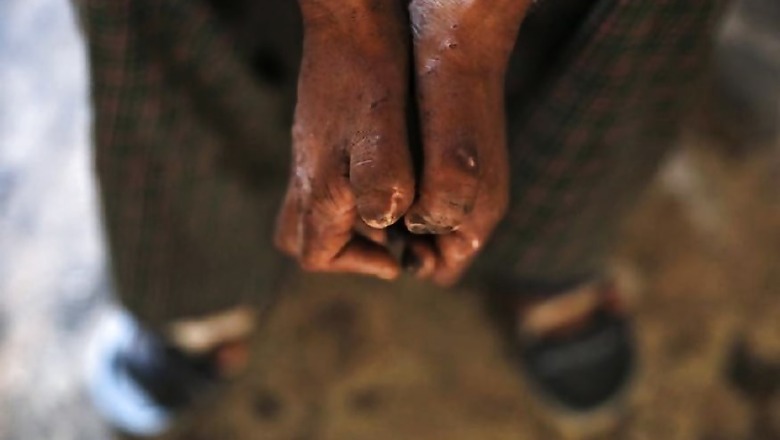
views
New Delhi: India may have intensified its vigil against leprosy but its efforts to trace cases in the hinterland are not sufficient, said Yohei Sasakawa, WHO's goodwill ambassador against the disease, on Thursday.
Japan-based Sasakawa, who was awarded the Gandhi Peace Prize last year for his fight against leprosy, is currently on a visit to India. He appealed for a leprosy eradication programme to be included in the country's school curriculum to ensure widespread awareness about the stigmatic disease, on the occasion of World Leprosy Day.
"India has a huge population and I recognise that its efforts to reach some population groups, like those in the mountains or the tribal population, are probably not sufficient," Sasakawa said. The WHO ambassador, however, said that India's measures against the disease were the most advanced in the world.
According to WHO, India has the highest number of new cases of leprosy in the world annually, followed by Brazil and Indonesia. India reported 135,485 new cases in 2016, which is 63 per cent of the 214,783 new cases reported globally.
For a long time, Sasakawa said, leprosy's diagnosis and treatment took place only at specialised hospitals and this contributed to discrimination. "WHO has worked to reform this so that leprosy is integrated with other diseases and can be treated at general hospitals. From what I have seen during my travels around India, this is not happening," Sasakawa said.
He raised the issue of leprosy patients facing discrimination even after they got cured. "People in society are not ready to accept them," Sasakawa said.
The 81-year-old social entrepreneur will also be visiting Gujarat. "If I get a chance I would definitely meet Prime Minister Narendra Modi and urge him to make the leprosy eradication programme a massive one like the Swachh Bharat Abhiyan," said Sasakawa.
According to the Ministry of Health and Family Welfare, as of March 2018, Dadra and Nagar Haveli reported 202 new cases of leprosy, followed by 6,499 in Chhattisgarh, 15 in Lakshadweep, 6,325 in Odisha, 14,338 in Bihar and 3,979 in Jharkhand.
The government initiated the leprosy control programme in 1955 which was revised as National Leprosy Eradication Programme (NLEP) in 1983. Recently, the Health ministry introduced several programmes for early case detections, such as the Leprosy Case Detection Campaign, Focused Leprosy Campaign and Sparsh Leprosy Awareness Campaign.
Sasakawa appreciated the role being played by ASHA workers to extend the government's programmes to the needy. "This ASHA system is unique in the entire world. They are a boon," he said.
















Comments
0 comment